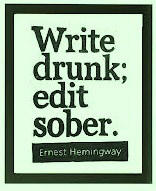The Longer Answer to Pip Hunn’s Question on Writers
 Hi Pip upon reading your comment, I began a rather long one, but your question is so good and so valuable that I felt it was a post worthy answer. So here is your comment and questions and below are my long winded answers.
Hi Pip upon reading your comment, I began a rather long one, but your question is so good and so valuable that I felt it was a post worthy answer. So here is your comment and questions and below are my long winded answers.
Rebecca –
Is a lot of your submission-type email so… Ego-laden?
I was reading over the letter again, and it strikes me as presumptive of our heroic Anon to say “It is important that this gets to as many publishers as possible in as short a period of time. I do not intend for anything to be changed.” I mean, when I get e-mail asking for suggestions on people’s writing, they’re obviously asking for editorial opinion.
Usually, good writers are well aware that their stuff is always going to benefit from another person’s input.
So what do you do when confronted with ego like this, and does that response change with the quality of the attached work? Do you even bother reading it?
Pip–
With about 140 emails a day I do get my fair share of these types of emails. I also get a lot of spam emails. Spam emails can be quickly dealt with- I put them into the trash. I’ve been blogging and writing for a while now, and I know what I can and can’t keep or even consider.
It can actually be divided into this: 40% are spam, or at least they are obvious spam, where they either write the “Dear Editor” or “Dear Literary Agent” or have 20 or more people as CC on them- and not a hidden BCC. Or they have attachments on them. Or they spell my name wrong, or something that doesn’t look good.
The next largest one is at 40% which are of ego types or of “I need instant results now.” They may have self-published a book, or they have plans to do so, but they aren’t making any money with their books.
With these people I am tempted to take their ego down a notch, but I know I need to be professional, so I always tell them it’s not instant riches, and you won’t get money with the type of book you have written. I am blunt to them, but professional- if there are spelling mistakes on an email, there are a lot more in the book. I also make a point of telling them that I bothered to read about one or two pages, but that there were so many problems, I couldn’t read more. Frankly, these people aren’t writers, but rather are looking for something that they think will earn them money, and fast.
More Posts:
The next bunch of emails I tend to receive, is at about 15% with these ones having a good query letter, but when you read their work there is too much “work” needed on the writers part that they need to do, and shouldn’t have been sent at that point. There might be spelling mistakes, but they aren’t big, but the plot has problems, or the writer simply doesn’t want to change much.
The last 5% I would say can be divided into these brackets, They are asking for some evaluation, or help and have listed the email as such or they are potential I would even say the potential ones are closer to 1% or less of what I get.
As for reading them, if they are not in an attachment (since these aren’t accepted) then I might read them but they are judged harder partly because I I know they probably won’t accept any help and partly because there is a learning curve which they won’t like to do.
But yes, I do get a lot of these emails, and that is where the 40 percent of emails come into play.
You May Also Like

Using A Compass When Writing and Life Challenges You
March 12, 2014
Writing Quotes
September 11, 2012